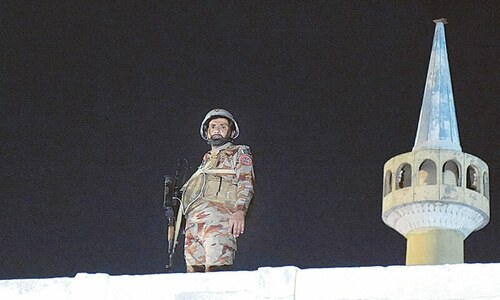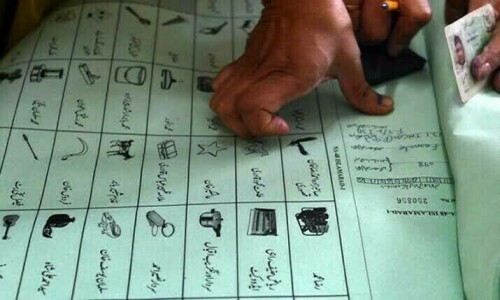
Qatar is a heady mix, a fusion of the Arab world with South Asia.
After all, going by the population groups, it has 40 percent Arabs with 36 percent South Asians. There is ‘Karrak Chai’ at almost every coffee shop to cater to its South Asian mass. The ‘Karrak’, as it’s usually called, is black tea with frothy whole milk, a substitute to the ‘Doodh Patti’ found in the Subcontinent. Biryani is a fast food item; it’s fused with nuts in a similar manner to Arabian rice. Urdu or Hindi is widely understood.
The South Asians could be, in some way, forgiven for feeling at home, but on the pitch at the World Cup Qatar is hosting, it is the East Asian teams who have made hay. Any country from South Asia, of course, has never come close to qualifying for the World Cup, so some football fans from those countries, who have a large fan-following for Brazil, Argentina, Spain or France, are joining in support for Japan and South Korea as well as Morocco and Saudi Arabia.
They haven’t been disappointed. At just the second World Cup held in the continent, teams from Asia have evolved from the also-rans to the giant-slayers. So have the African teams. In every sense, this World Cup has been a leveller, a closing of the gap.
European giants have fallen by the wayside in the ongoing World Cup in Qatar, slain by once minnows from Asia and Africa
Saudi Arabia’s earth-stopping win over Argentina set the tone. They couldn’t go beyond but it was a momentous signal of intent. South Korea, Japan or Morocco might not go all the way, but each of those teams sent more illustrious rivals from football’s old establishment home in a rousing, nerve-bending group stage to break through.
The Koreans, with their last-gasp win over Portugal, sent back Luis Suarez and Uruguay. The Japanese got the better of both Germany and Spain in the proverbial ‘Group of Death’. Morocco left Belgium gasping for air and eventually sank them and then also dumped Spain to reach the quarter-finals.
The Asian rise, however, has largely been put into the shade by the fall of Germany and Belgium. After the group stage ended, FIFA’s Technical Study Group (TSG) unveiled its findings, which showed that the Germans were the side with most shots on goal with 67, and yet could only finish third in their group.
In their final group game, they had trailed Costa Rica 2-1 before eventually winning 4-2. In those three minutes in which the Costa Ricans led, with Japan 2-1 up against Spain in the other game, both Germany and Spain were headed to the exit door. The Germans rallied but even though they got the win, they couldn’t save themselves.
It marked the second successive group stage exit for a side that’s been renowned for their cutting-edge efficiency. Ask Juergen Klinsmann, who played as a striker in Germany’s 1990 World Cup winning team, and he will tell you that it’s the lack of a classic centre forward, a number nine, which led to Germany’s ouster. Germany did put four past Costa Rica in a breathless finale to their campaign, but they missed chances to put their games to bed against both Japan and Spain.
“We haven’t had a number nine since Miroslav Klose,” Klinsmann, a member of the TSG, said as the findings were revealed. “The False Nine always has an excuse, that they’re not genuine scorers.”
Klose, the World Cup’s all-time top goalscorer, called it a day after Germany’s title triumph in Brazil and it’s mind-boggling that the country that produced Gerd Mueller, Karl-Heinz Rummennigge and Rudi Voller, hasn’t been able to produce a successor to Klose.

But, there is also a greater problem. The coaching revolution brought about by Pep Guardiola and Juergen Klopp has seen the high press become synonymous with the game in Germany. Germany coach Hansi Flick had implemented it to devastating effect with Bayern Munich. At times, it felt there was no need for an out-and-out forward. Bayern, though, still had Robert Lewandowski, a marksman of the highest order, on their books at that time.
Germany’s exit, though, also showed the absence of leadership or battling qualities in their squad. Manuel Neuer and Thomas Mueller, stalwarts of their World Cup glory eight years ago, were still in their squad in Qatar but there was no one who could provide the impetus that the likes of Bastian Schweinsteiger, Philipp Lahm or Klose used to offer.
Belgium, on the other hand, had a different problem. A collection of gifted, incredibly talented individuals, they once again flattered to deceive. The World Cup in Qatar was the last chance for their ‘golden generation’ to deliver a long-awaited trophy. Their star playmaker Kevin De Bruyne had already dampened expectations ahead of the World Cup, by stating in an interview that the side was now too old to win it and that their best chance was four years ago, when they fell to eventual champions France in the semi-finals.
This time, Belgium were not even equal to the sum of their parts; a disjointed, fractured team with reports of disputes among teammates rife. Their 2-0 defeat to a Morocco side with more energy and desire was severely damaging and, when they could have advanced with victory over Croatia, they also fell short. Unlike Germany, their best chances fell to a top striker in Romelu Lukaku. But even then, they were unable to score.
Now, the rebuild will begin. Roberto Martinez, their coach, left as soon as Belgium’s World Cup ended. As awe-inspiring their run was four years ago, where they beat Brazil in the semi-finals, they were awful here in Qatar. Even with all their quality and experience, they were overrun by Canada in their opening game.
Whether Belgium will produce another generation of players close to the likes of De Bruyne, Eden Hazard or Lukaku remains open to question. How Germany bounce back from this will also be interesting.
Those two now need to rise after their bumpy falls at the World Cup. For the sides that ousted them, they will continue to relish their victories for some time now.
The writer is Dawn’s Sports Editor.
He tweets @UmaidWasim
Published in Dawn, EOS, December 11th, 2022













































